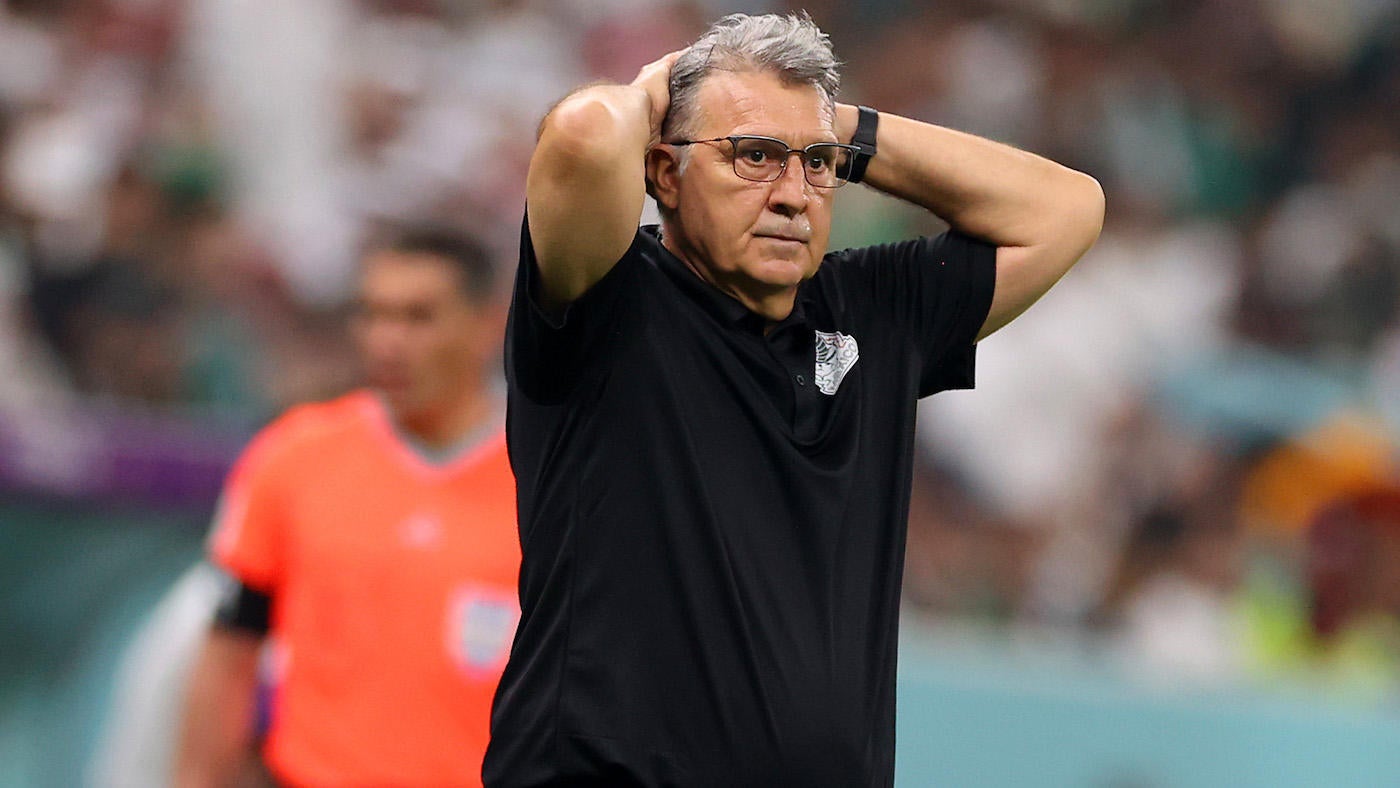
Mexico made history in the 2022 FIFA World Cup after they failed to make it out of the group stage for the first time since 1978. Having El Tri in the round of 16 has been a World Cup staple. The streak of seven consecutive round of 16 appearances is snapped and the 2026 co-hosts head home early for the first time in decades.
The 2-1 win against Saudi Arabia provided little solace in the form scoring, as the 2022 squad left it to the last 45 minutes of the group stage to avoid going home with no goals at a World Cup.
Craving more World Cup coverage? Listen below and follow House of Champions, a daily CBS Sports soccer podcast, bringing you top-notch analysis, commentary, picks and more during the big games in Qatar.
Henry Martin and Luis Chavez made sure that wasn’t the case for El Tri on their final matchday, but the effort was simply too little and too late with permutations that favored them to advance out of the group practically few and far between. Now with their World Cup journey over, the Mexican federation needs to look ahead and figure out how this nation can regain relevance once more in this modern era of football ahead of pivotal cycle that sees them welcoming the rest of the globe as tournament co-hosts for 2026.
Let’s take a look at three things that need to change
1. New coaching staff
Tata Martino’s seat was beyond hot before Mexico even played a game in Qatar. The team never quite regained peak form from 2019 when Martino first took the job after leading Atlanta United to an MLS championship. Despite the ups and downs of building a roster post-2018 World Cup without Carlos Vela or Chicarito Hernandez, the team still qualified for Qatar behind Canada in the octagonal group. Yon de Luisa, president of the Mexican federation, also reiterated his support of Martino ahead of the World Cup and the team would “find their form” and compete in the tournament.
The Martino era is now over, practically confirmed by the man himself in his postgame comments:
“I am the first responsible for this terrible disappointment and frustration that we have,” Martino said. “As the person in charge, it causes a lot of sadness, I fully assume responsibility for this great failure.
“My contract ended as soon as the referee blew the final whistle and there is nothing more to be done.”
The search for a new head coach will undoubtedly begin, here are a few candidates to lead the team to the next World Cup. After Mexico’s women’s national team failed to qualify for the 2023 FIFA Women’s World Cup during July 2021, Pedro Lopez was tabbed as new head coach in August and officially named in September. If a similar timeline ensues, then the federation may enlist a new men’s head coach soon, potentially before the new year.
Let’s take a look at some candidates already in the running:
- Ricardo Tuca Ferretti: A longtime staple among Liga MX, the Brazilian tactician has coached several clubs, including an iconic decade with Tigres UNAL. He has spent time with the national team but never in an official coaching capacity.
- Antonio Mohamed: The former Argentina international once played in Mexico and coached Monterrey. He’s been vocal about his availability to coach the men’s side recently.
- Matias Almeyda: Another former Argentine with ties to Mexico. He currently coaches Greek Super League club AEK Athens and has won in titles Liga MX, including Copa MX and a Concacaf Champions league title.
- Miguel Herrera: Former Mexican tactician is no longer the manager for Tigres, but he already had a stint with the Mexican national team that ended in his dramatic dismissal over a physical altercation with a commentator.
2. Defined vision
The endless runs out wide with no alternative runs into the box for support plagued El Tri in their first two group stage matches. Even as Martino was vocal in press conferences about more bodies in front of goal, the two goals scored came in the final game against the run of play off of two separate set pieces. It further highlights the disconnect between the players and the coach.
Whoever takes over the reigns of the national team program will need to have more than just experience. They will have to have an actual vision for the team during this era of soccer. El Tri’s scoring drought haunted them throughout various matches in the build-up to the World Cup and ultimately cost them a spot in the knockout phase. While navigating injuries and a pandemic are setbacks, they can’t necessarily be pointed to as excuses. There will always be players finding and rediscovering their form. What they won’t discover is the game plan — that’s on the coaching staff.
3. More defined roles for players
It’s OK to look at your core of young players and target the personnel you want to build around for 2026. Those conversations should have already started, but the inclusion of Hector Herrera and Andres Guardado over others on the roster was a decision on experience and veteran status — and neither player logged minutes in the final match.
Mexico will be co-hosts in 2026 and a continued commitment of development plans to the younger core of players needs to begin now.



